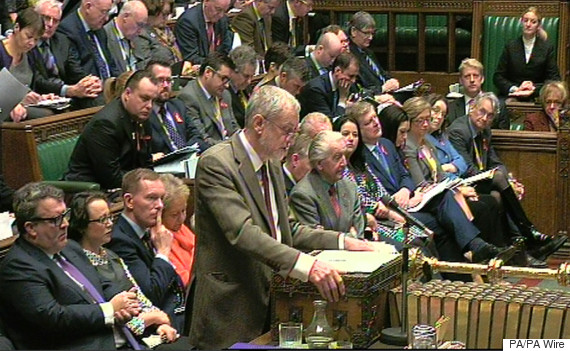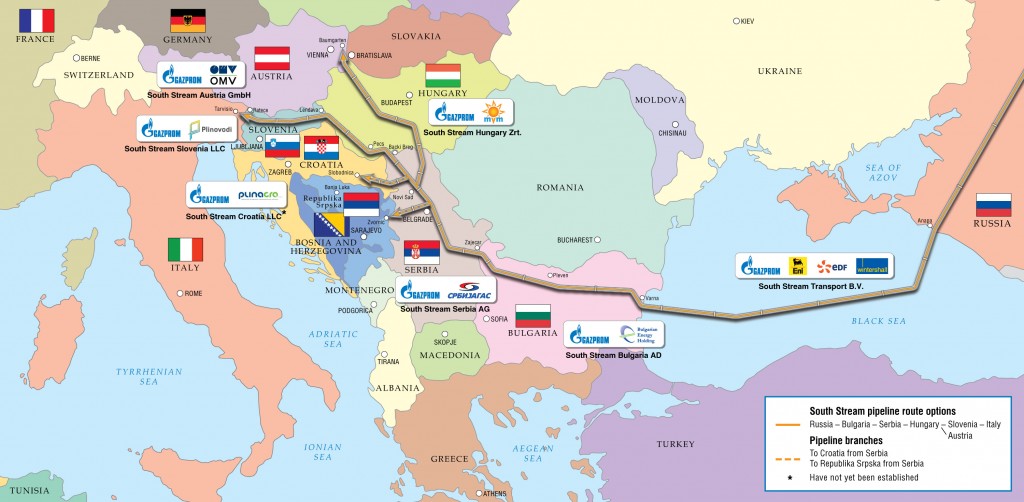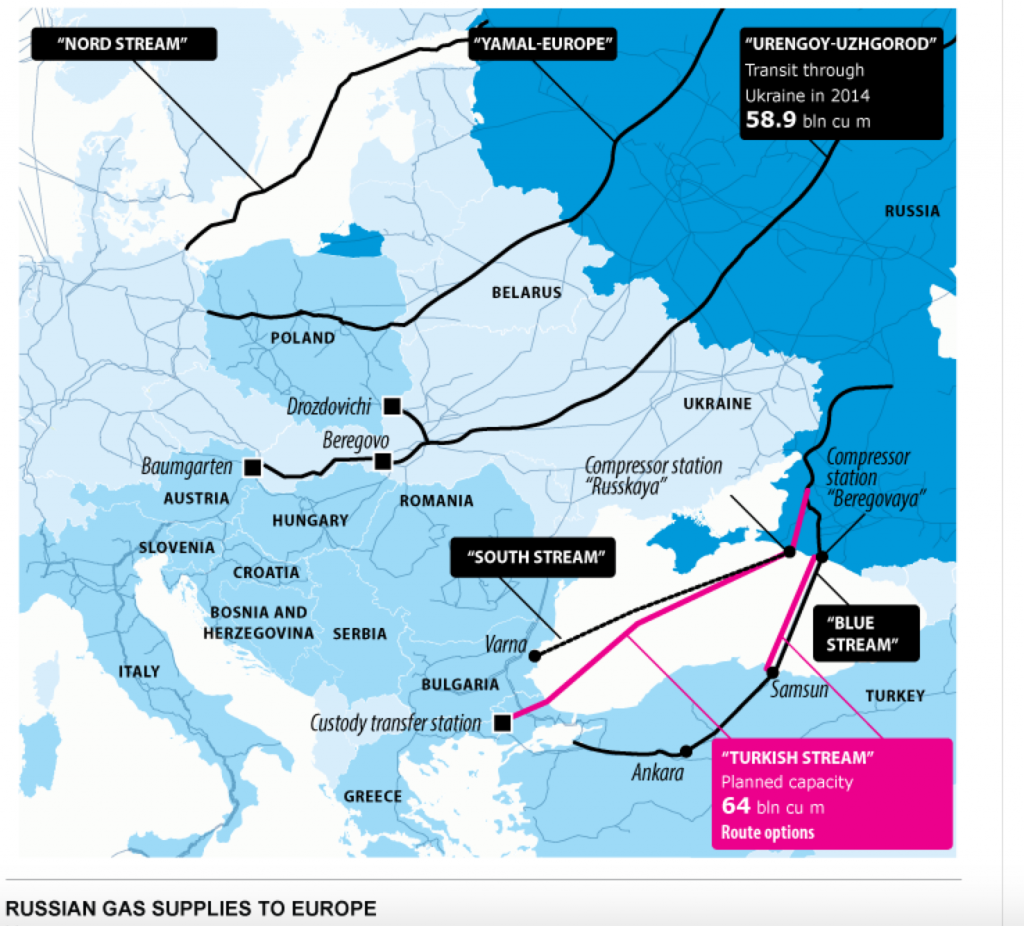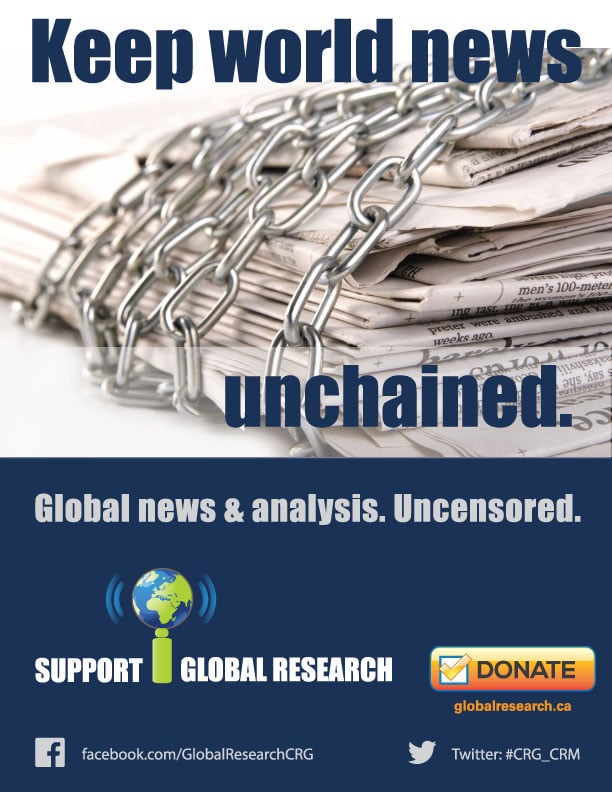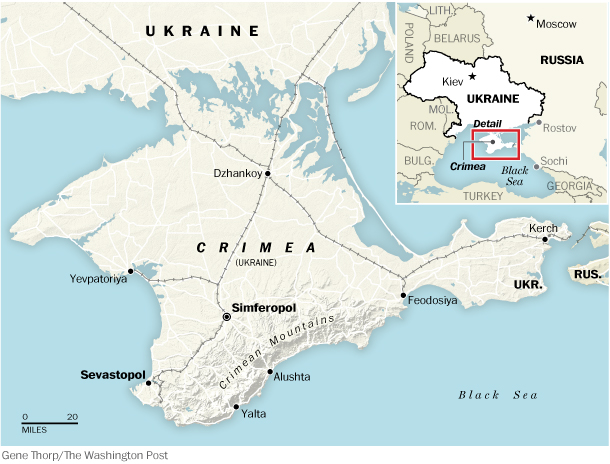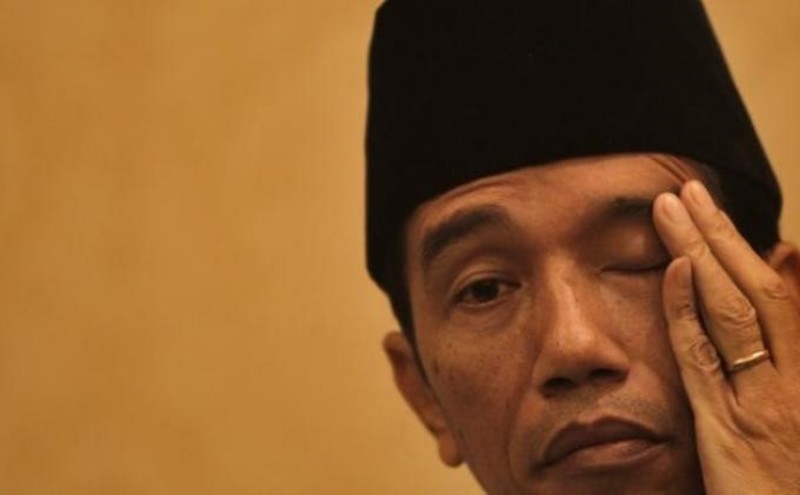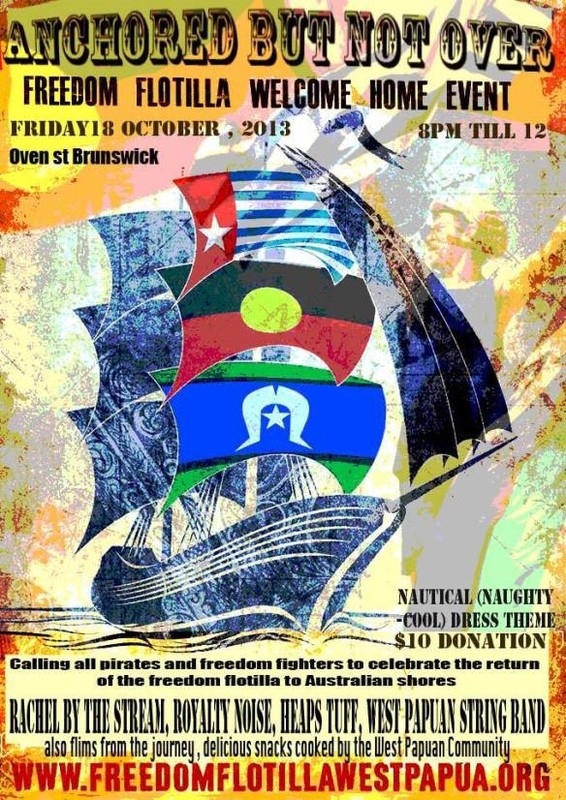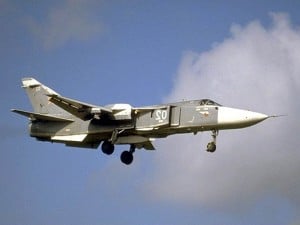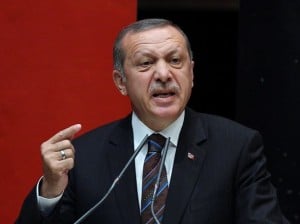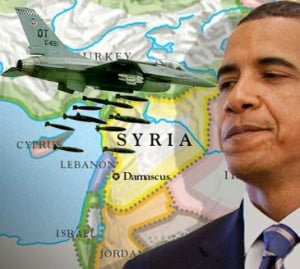Michel Chossudovsky’s most recent research on the alleged ISIS terror in Paris, as well as the Radisson Hotel terror in Bamako, Mali, is discussed.
Analysis of current state sponsored terror in general, within a larger global geopolitical and economic framework, is addressed.
Topics include
The fundamental contradiction in the official narrative of the War on Terror versus the Islamic State or ISIS;
Islamic State a creation of U.S. intelligence;
The geopolitical agenda; the militarization of Africa; the Berlin Conference in the late 19th century;
Foreknowledge of the Paris terror;
French military escalation against Syria planned before the attacks;
Replication of the 9/11 discourse as a pretext to justify a new wave of bombing against Syria;
Attack by a foreign power justifies a state of war;
The Doctrine of Collective Security, Article 5 of NATO;
The Muslim community subjected to a witch hunt; the criminalization of the state and the financial system;
The end of the French Republic.
Full Transcript of Interview below (scroll down)
Aired: November 25, 2015
Transcript:
This is Guns and Butter.
“But the thing is that to enforce an imperial agenda, you scrap the republic. Now, Julius Caesar understood that perfectly well. I can’t remember the exact quote but he said you don’t build an empire with a republic. I think that in effect that is what’s happening is that the republic is being scrapped. It’s not only being scrapped in France; it’s being scrapped in America.”—Michel Chossudovsky
I’m Bonnie Faulkner. Today on Guns and Butter, Michel Chossudovsky. Today’s show, “State Terrorism : Franco-American Style.”
Michel Chossudovsky is an economist and is the founder, director and editor of the Centre for Research on Globalization based in Montreal, Quebec. He is the author of 11 books including The Globalization of Poverty and the New World Order, War and Globalization, The Truth Behind September 11th, America’s War on Terrorism and The Globalization of War : America’s Long War against Humanity. Today, we discuss his most recent articles on the alleged ISIS terror in Paris as well as well as the Radisson Hotel terror in Bamako, Mali, a former French colony. We analyze current state sponsored terror in general, within a larger global geopolitical and economic framework.
Bonnie Faulkner : Michel Chossudovsky, welcome.
Michel Chossudovsky : I’m delighted to be on Guns and Butter.
Bonnie Faulkner : On November 13th, 2015 shootings and suicide bombings were staged in five different locales in Paris, the capital of France. One hundred and thirty people were killed. Less than a week after the Paris gun and suicide bomb attacks a group of heavily armed gunmen stormed the Radisson Blu Hotel in Bamako, the capital of Mali, a former French colony, in which 21 people were killed. There have been a string of recent high profile terror attacks, from bombings in Beirut and the downing of a Russian airliner over the Sinai Desert. Where do you think we should begin in trying to address all of these recent terror attacks?
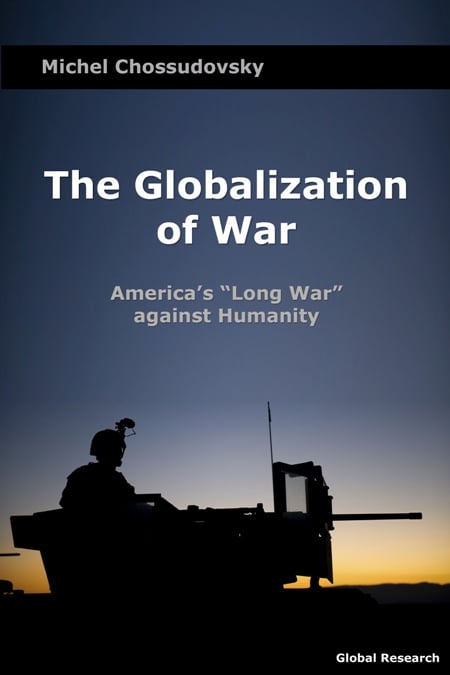 Michel Chossudovsky : I think there’s a fundamental contradiction in the official narrative both of the United States and, of course, of France and its allies. The United States is leading a war on terrorism which is directed against the so-called Islamic State yet the evidence amply confirms that the Islamic State and the various al Qaeda related terrorist organizations are creations of US intelligence. They’re what are called in intelligence parlance “intelligence assets.”
Michel Chossudovsky : I think there’s a fundamental contradiction in the official narrative both of the United States and, of course, of France and its allies. The United States is leading a war on terrorism which is directed against the so-called Islamic State yet the evidence amply confirms that the Islamic State and the various al Qaeda related terrorist organizations are creations of US intelligence. They’re what are called in intelligence parlance “intelligence assets.”
The other dimension, of course, is that in effect Obama is not waging a campaign against the terrorists because these terrorists are in fact the foot soldiers of the Western Military Alliance in Syria and they are in fact protecting the terrorists. This is amply confirmed and it’s come to our attention since the onset of the Russian bombing, and the Russians are going after the real terrorists.
Click image to order Chossudovsky’s book directly from Global Research
When an occurrence such as that of Paris or Bamako is presented then to the media or the media analyzes these events, what they do is simply copy and paste the official narrative without presenting an understanding of who is actually behind these terrorist organizations. Almost immediately in the wake of the terrorist attacks in Paris the French media went into overdrive stating unequivocally – and that was prior to the conduct even of a police investigation – that the Islamic State was indelibly behind these attacks.
Then the president, François Hollande, ordered by decree a national emergency, the suspension of civil liberties, the right to enter homes and arrest people without a warrant, and at the same time he closed down the borders. Now this, as I recall, was announced a few minutes before midnight on November 13th local time, prior to any consultation with his cabinet colleagues. He actually confirmed that the cabinet meeting was to take place subsequently. In his speech he says, “We know who they are.” Immediately the French media says, “This is a French-style 9/11.” In other words, in French it says “Le 11 Septembre à la Française.” Following from that, the official story prevails.
The official story is based, as I mentioned, with a fundamental contradiction. You can’t on the one hand say you’re the victim of Islamic State when, in fact, you’re the creator of Islamic State. It’s a non sequitur. You cannot say that the attacks – and he was very explicit – the attacks were from outside France, from Syria, originating from Syria. You can’t say that the attacks originated from Syria directed against the French republic and at the same time support covertly these same terrorists. There’s ample evidence that not only the United States and its allies have supported the ISIS and its affiliate groups such as the Libya Islamic Fighting Group – so has France – with weapons, with training, with financing and so on.
That is the situation and what the French public and Western public in general have been led to believe is that these terrorists are involved in crimes against humanity without realizing that, in fact, their intelligence services, which are under the auspices of an elected government, are manipulating these terror organizations, are supporting them, are providing them with weapons.
Bonnie Faulkner : You write that the Islamic State, ISIS, the alleged architect of the Paris attacks, was originally an al Qaeda affiliated entity created by US intelligence with the support of Britain’s MI6, Israel’s Mossad, Pakistan’s Inter-Services Intelligence, ISI, and Saudi Arabia’s General Intelligence Presidency, GIP. You write that, “From the outset of Obama’s bombing campaign in August/September 2014, the US led coalition has not bombed ISIS rebel positions.” Has the US counterterrorism campaign been fake?
Michel Chossudovsky : Well, absolutely. This is a self-proclaimed counterterrorism campaign, But in effect it is there to justify the bombing of a sovereign country in derogation of international law. The United States has been pressuring the government of Bashar al-Assad to step down. They want regime change and they have not been able to achieve that despite four years of intensive terrorist activities, which they sponsor, on the ground. In the last year, we’re talking about the bombing raid, which has lasted for 13 months or more and which is in effect supporting those terrorist entities.
Now, one can say, well, where do you get the information as to who is behind these terrorists? I can tell you that from day one, in March 2011, the terrorists were sent in with the support of the Western Military Alliance. In fact, this was reported in August 2011 by DEBKA, which is an intelligence online media. I’m not saying that I trust DEBKA but they acknowledged very clearly, and it’s corroborated by other reports, that the initiative of the Western Military Alliance was actually launched by NATO. It consisted in setting up a campaign to enlist thousands of Muslim volunteers in Muslim countries, which would then be coordinated by NATO in Brussels and the Turkish high command. That is exactly what has happened.
It took a long time for Western public opinion to actually even realize that the so-called opposition forces against the government of Bashar al-Assad were actually terrorists. Then, when these atrocities were committed they’ll say invariably – and they probably still do – the Western media will accuse Bashar al-Assad of killing his own people.
Well, we have enough information to know that this so-called war on terrorism is fake. The United States and its allies are involved in a criminal undertaking in violation of international law against a sovereign country. It’s geopolitics, it’s economic conquests, and they’re using the war on terrorism as a pretext. Now the bombing campaign is really in response to the fact that government forces in 2014 actually had managed to pacify a large part of Syrian territory and the terrorist pockets had been eliminated, so they initiated the bombing campaign and then they fast-tracked the recruitment and training of terrorists out of Saudi Arabia, Qatar, and so on, so forth.
All of this is known and the thing is that the Western media will actually acknowledge the fact that Turkey is responsible for this, that and the other, that Saudi Arabia, we can’t trust them; they’re supporting the terrorists. Qatar’s supporting the terrorists. But, of course, the Western countries are not supporting the terrorists even though their allies are obeying orders. Qatar is not really a country; it’s a proxy state in the Persian Gulf. It obeys orders. There’s a whole series of military and intelligence bases there close to Doha, the capital of Qatar.
Saudi Arabia’s the same. These are countries which are aligned with Washington. They receive military aid. They are told what to do. Historically, going back to the Soviet-Afghan War, we know that Pakistan’s military intelligence, Inter-Services Intelligence, ISI, and its Saudi counterparts were funding this operation, they were recruiting the terrorists. It’s corroborated by Brzezinski and so on so forth. All this is known and the CIA does not deny it. What they say, of course, is that in the wake of the Cold War they ceased their relationship with al Qaeda and then al Qaeda turned against us so to speak.
This is absolute nonsense because I can tell you, for one thing, the actual terrorists continue to be trained in Afghanistan and Pakistan. In fact, the proclaimed architect of the bombing of the hotel in Bamako, Belmokhtar, was recruited by the CIA in 1991. The Soviet-Afghan War was already over, the Cold War was over, and the CIA was continuing to recruit these people.
Who were they recruiting?
They were recruiting potential intelligence assets which could then be deployed in a number of countries – The former Soviet Union, of course the Russian Federation, Chechnya but also in the Middle East. It just so happens that BelMokhtar was trained in Pakistan and Afghanistan by the CIA and then he was sent back in1993 to Algeria. Today he is behind a fraction group of what is called Al Qaeda in Islamic Maghreb, and the operation which was launched in Bamako allegedly was undertaken by his group on the one hand and the broader organization, which is called al Qaeda in Islamic Maghreb, AQIM, which is an affiliate of al Qaeda.
I should mention that AQIM is also very much integrated with the so-called Libya Islamic Fighting Group (LIFG), which was supported by NATO during the NATO campaign against Libya in 2011, so that NATO supports the Libya Islamic Fighting Group which in effect has more or less merged with AQIM, the architect of the Bamako bombing, this mythical figure, Belmokhtar is actually trained by the CIA.
There’s CIA all over the place, and they cannot deny because the evidence is so compelling, that the intelligence services of Western countries are supporting the terrorists and at the same time, the governments of Western countries are waging a campaign allegedly against the Islamic State when in fact they’re also supporting the Islamic State. They’re using this as a pretext to bomb a sovereign country resulting in tens of thousands of casualties, a refugee crisis, the destruction of entire cities and so on, during a period of four years.
That is the picture and we don’t need to start engaging in any sort of conspiracy theories to underscore the fact that if the intelligence services of France and the United States are supporting ISIS, and ISIS is designated as the threat to the security of the French nation, there’s an obvious contradiction. Because you can’t support the ISIS and then make a speech at 12 :00 at night – I’m talking about President Hollande – and say, ‘We know who they are, they’re attacking us, they’re killing our people.’ I think to put it mildly, President François Hollande has blood on his hands.
I’m speaking with economist and director of the Centre for Research on Globalization, Michel Chossudovsky. Today’s show, State Terrorism : Franco-American Style. I’m Bonnie Faulkner. This is Guns and Butter.
Bonnie Faulkner : Now, you’ve been referring to the Bamako, Mali attacks, the most recent terror attacks. News media report that the Bamako terror operation was coordinated by Mokhtar Belmokhtar, whom you have mentioned. What do you think is the significance of the Bamako attacks? And were the Mali attacks, in Bamako, related to the Paris terror? For instance, what was France’s role in the Libyan war and the takedown of Muammar Gaddafi? Is this all related?
Michel Chossudovsky : Let me put it this way. Both the Paris attacks as well as the Bamako attacks have geopolitical implications. First, with regard to Paris it’s worth noting that one week before these attacks occurred the Hollande government had ordered the deployment of the Charles de Gaulle aircraft carrier group to the eastern Mediterranean and this was in support of the alleged campaign against terrorism in Syria. Even before these attacks occurred they’d already been preparing to send this powerful navy and air force deployment to the Middle East in support of Obama’s campaign against the ISIS.
In the wake of the Paris attacks, as we recall, the French air force went in and bombed the alleged headquarters of ISIS. The official declaration from the Ministry of Defence was that they had actually targeted the command posts. We got information from Syria that, in fact, what they targeted were health clinics, a museum and the stadium; in other words, the country’s civilian infrastructure. That has been persistent throughout the last year, since the United States started to bomb Syria.
Now, with regard to Bamako, the geopolitical agenda is essentially to create a pretext and a justification for the intervention of France and the United States in Sub-Saharan Africa. They would be directing their actions allegedly, of course, against terror organizations which threaten the partner governments in Africa – which is nonsensical because they control those terror organizations, whether it’s Al Qaeda in the Islamic Maghreb or Boko Haram in Nigeria or the Libya Islamic Fighting Group. All these organizations are “intelligence assets” and they’re being used to destabilize sovereign countries.
The Bamako attacks will no doubt also be used by France, by the United States to in a sense re-colonize Africa in terms of militarization of the entire continent, the control of the resources, the destabilization of post-colonial society, etc., which they’re doing through various mechanisms. I suspect that the geopolitics underlying the Bamako terror attack is the militarization of Africa. I should mention that USAFRICOM also sent in a contingent into Mali to assist the French and Malian special forces, which stormed the hotel. US Africa Command is the key to this militarization of Africa.
I should mention that François Hollande is in fact a US proxy. He acts on behalf of Washington. He has absolutely no concern in actually protecting the French spheres of influence in West Africa, for instance. The alliance with the United States – and it’s a subordinate alliance; France is a subordinate to Washington – is in fact to pave the way towards the US colonization of the African continent, which historically, as we recall, was really colonized by the Europeans. In the late 19th century they had a conference called the Berlin Conference where they carved up Africa into different sections and then divided the continent, but America was not included in that process.
Now what we see emerging is in fact the displacement of the former colonial powers in Africa. Portugal has already gone and so has Spain and so has Belgium, and France is ultimately being displaced by the United States. Francophone countries are becoming Americanized. The dollar will eventually replace the CFA franc, which is a proxy currency linked to the French treasury but tied into the euro.
I think that is the scenario. It’s the conquest of the African continent, which is supported by the self-proclaimed mandate of the Obama administration to go after the terrorists in Sub-Saharan Africa, Boko Haram, AQIM and so on. They’re doing that in all the various areas where they want to extend their zone of influence.
Of course, in Southeast Asia you have the Jamiya Islami (JI) in Indonesia and Malaysia, and then you’ve got of course various other jihadist organizations in the western part of China which are involved, again, in insurgencies and they’re also supported by Western intelligence via Pakistan’s ISI.
Bonnie Faulkner : It sounds like the United States and France are working very closely together and there is then evidence that French military escalation directed against Syria was planned before the November 13th terrorist attacks. What evidence is there, if any, of official foreknowledge of the Paris terror itself?
Michel Chossudovsky : You’re absolutely right . France has been participating in the bombing raids right from the outset. Ironically, they operate out of the United Arab Emirates, which in fact hosts the terrorist organizations or trains them and so on.
With regard to foreknowledge, I don’t want to necessarily tackle it in those terms but there were certain events which I considered revealing. The fact that about a month and a half before the Paris attacks, there was an article in Paris Match, which is a tabloid, a magazine which is widely read and very authoritative. In this Paris Match report it was stated that within a short period of time there would be an attack. They used the term “9/11 French-style,” “La 11 septembre à la française.” That was, in fact, the title of the article.
The Paris Match on October 2nd predicted a French-style 9/11. They said that the attacks on France will be on a scale comparable to 9/11. They also said that intelligence services fear a 9/11 French-style. Then you ask yourself, what was the purpose of this media report? Is it media disinformation? Is it there to create a hype or create an atmosphere of fear and intimidation prior to the actual events?
Ironically, when the events occurred, the media was actually simply restating what had been said about a month and a half ago. They said ‘this is a terrorist attack similar to 9/11.’ They also pointed immediately, without any evidence, to the fact that these attacks came from Syria. Then, of course, as we recall, subsequently a few days later the French president, after having declared a national emergency, stated “this is an act of war against us” despite the fact that this is not an act of war; it’s simply an event. It’s a terror event, not an act of war. But he said it’s an act of war because we’re being attacked by a foreign power, and that foreign power is allegedly in northern Syria somewhere in Raqqa.
It just so happens that we support these terrorists, but we have to invoke, in a sense, the fact that we’re being attacked from outside so that then we can also then claim with our coalition partners in NATO and the European Union the doctrine of collective security. That’s Article 5 of NATO, which says that an attack against one member of NATO is an attack against all members of NATO. That’s what they invoked on September 12, 2001 in the wake of 9/11, saying that it was an attack against the United States from abroad – although we didn’t witness any Afghani planes in the skies of New York.
They’re doing exactly the same. They’re replicating the 9/11 discourse, the fact that this is an attack from a foreign power; it just so happens that that foreign power is in northern Syria somewhere. They’re using this as a pretext to escalate the war against Syria, not against their proxy terrorists in Raqqa, and to justify a new wave of bombing by coalition forces. I think that is ultimately the agenda.
I’m speaking with economist and director of the Centre for Research on Globalization, Michel Chossudovsky. Today’s show, State Terrorism : Franco-American Style. I’m Bonnie Faulkner. This is Guns and Butter.
Michel Chossudovsky : Then they have to confront Russia, because Russia is going after the real terrorist. I think that one of the dimensions of this particular Paris attack is that they need now a mechanism or a pretext to undermine Russia’s endeavors, which consists essentially in destroying the foot soldiers of the Western Military Alliance, who are the terrorists – these various entities, which are supported covertly by the CIA, by MI6, by Mossad, and which are integrated by special forces in permanent liaison with the Western Military Alliance. These foot soldiers have their commanders and those commanders also liaise with NATO and the United States.
The fact is that Israel is also behind the terrorists and we don’t even need to speculate on that. They’ve actually said that they have a facility in the Golan Heights. They’re bringing wounded terrorists from Syria into the Golan Heights, with hospital facilities. They have Israeli advisors within the terrorist formations and so on. We have photo ops again of Netanyahu with terrorist commanders being given hospital treatment in the Golan Heights.
The issue is that what we’re discussing here will not be given coverage in the mainstream media and the public is drowned with a humanitarian discourse. Innocent people are being killed and it’s those events where terrorists attack innocent people which ultimately create within everybody this feeling of solidarity, this feeling of fear as well. Ultimately, when people die we feel it.
Then what we do is we side with the government. That’s what they’re doing. Everybody’s siding with the French government. Even people who hate François Hollande are siding with the French government because the French government is there to protect them and they are shocked and concerned about the loss of life.
That concept or that procedure there is well entrenched, in fact, in US military doctrine. I should remind listeners of what was called Operation Northwoods. It was during the Kennedy administration. It was a secret plan by the Joint Chiefs of Staff to start killing people in the Miami Cuban community as well as in Washington with a view to justifying a war of retribution against Cuba. I quote from the official document. They said, we kill people in Miami and that creates “a useful wave of indignation” – indignation of US public opinion, which is a normal thing. Everybody has indignation when people are killed.
Then they say, Cuba, Fidel Castro, has attacked America; we have to attack Cuba in retribution. That is the logic of these so-called false flags. The Operation Northwoods documents are there. People can go and consult them, because those secret documents have been declassified after half a century and we know that the US military were contemplating this. It was turned down by Kennedy and it was also turned down by the Defense Secretary McNamara, at the time. In effect, it was a plot from the Joint Chiefs of Staff, no doubt also supported by US intelligence at the time.
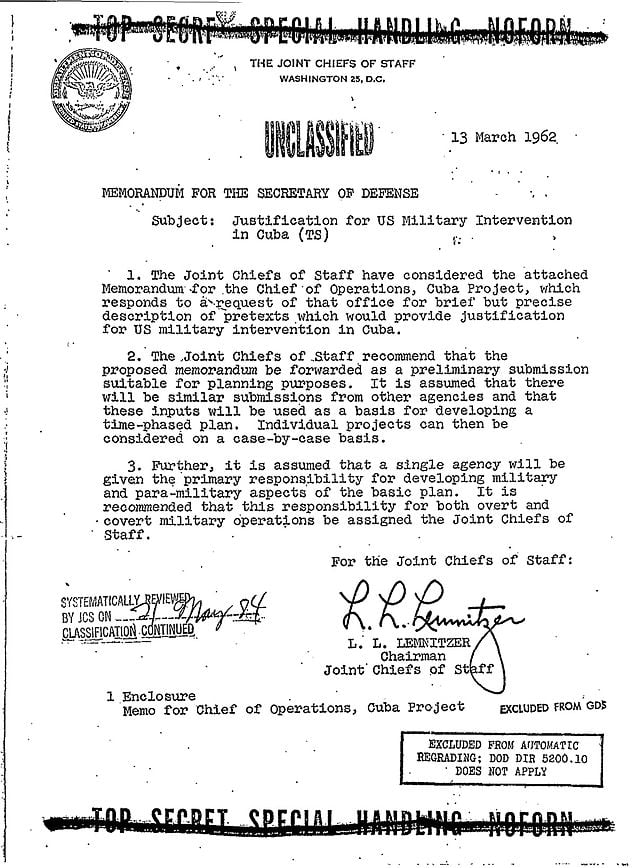
Just to mention one further element, the concept is what General Tommy Franks, who was US Central Comand (USCENTCOM) commander responsible for the invasion of Iraq, called a “terrorist, massive, casualty-producing event,” which results in civilian casualties. He said that in effect these terrorist, massive casualty-producing events constitute an instrument which enables the government to militarize – in this case he was talking about the United States – to militarize the United States and in effect that’s exactly what’s happening in France. The massive, casualty-producing event in Paris is being used as a pretext to declare martial law, to suspend civil liberties. It is what I would call the end of the French Republic. It marks the end of the French republic and the potential transition to a totalitarian regime under the disguise of democracy or representative government.
Bonnie Faulkner : I’m glad you mentioned Operation Northwoods because we are actually recording this interview on November 22nd, which is the 52nd anniversary of the assassination of the president of the United States, John Kennedy. Of course, we have seen endless war ever since. In terms of the media coverage of the Paris terror attacks, it seems like the notion of revenge is being used as a motivating factor. Of course, this is a contradictory claim, right?
Michel Chossudovsky : You know, revenge – an eye for an eye, a tooth for a tooth – has been with us for several thousand years. You need a pretext to wage war and war in the modern context –and the political leaders know– that war is the ultimate crime under Nuremburg. Whatever the underlying motive, the only war that is allowed is a war of self-defense. You’re allowed to defend yourself against aggression, but under Nuremburg, any act of war against a foreign country is a criminal undertaking.
What these attacks and deaths of civilians are there to perform is to give a mandate to the [US or French] government to initiate a war of retribution against a foreign country – in this case Syria, even though they’re not even saying officially that the Syrian government is behind the terrorists. They’ll probably start saying that at one point – when in fact, we know that Bashar al-Assad has been combating terrorism from mid-March of 2011. It’s been a battle of government forces against terrorism and those terrorists are supported by foreign powers so that certainly Syria can invoke self-defense.
But for France to invoke self-defense on the grounds that it’s been attacked by some elusive entity in northern Syria is far-fetched, but it seems that people are buying it. They’re saying, yes, we have to act, in an act of revenge.
The other dimension is that throughout France the police are on a rampage. We have official figures as to the number of house searches and arrests and so on, but none of those official figures should be actually taken seriously because what’s happening now is that the Muslim community of France, which represents 7.5 percent of the population, is being subjected to a witch hunt, so we’re in a situation which might be called the Spanish Inquisition. I should mention, historically, the French Inquisition of the Middle Age was far worse.
This is an inquisitorial type of situation where you are going after people. The wave of anti-terrorism is coupled with Islamophobia and ultimately it’s quite logical from a geopolitical or economic standpoint to demonize Muslims because it just so happens that the Muslims are the inhabitants of countries which possess the world’s oil reserves.
I’ve made the calculations that up to 65 to 70 percent of the reserves of crude oil – I’m not talking about natural gas or other forms of oil like tar sands – between 65 and 70 percent of crude oil reserves are in Muslim countries, a large part of which is, of course, in that region extending form the tip of Saudi Arabia up to the Caspian Sea Basin. If those countries which have those oil reserves happened to be Buddhist, the whole campaign would be directed against Buddhists. They need to demonize the Muslims as a pretext to wage their battle for oil.
Bonnie Faulkner : And, of course, what begins as a demonization of Muslims, or whatever group, ultimately laps over into everybody else, the population at large. You’ve mentioned the state of emergency that has been declared in France. Drastic police state measures I would assume are a state of such a state of emergency, arbitrary arrests. You mentioned that we’re witnessing an end to the French republic.
Michel Chossudovsky : Absolutely, but the thing is what is implied there is that to enforce an imperial agenda, you scrap the republic. Now, Julius Caesar understood that perfectly well. I can’t remember the exact quote but he said you don’t build an empire with a republic. I think that in effect what’s happening is that the republic is being scrapped. It’s not only being scrapped in France; it’s being scrapped in America.
I just recall that Donald Trump in his election campaign is calling for police state measures directed against every single Muslim in the United States of America and establishing some kind of database to track Muslims in the US.
Now, he was rebuffed by his Republican cohorts but nonetheless, that type of political narrative, which is based on promoting hate, is becoming very popular and the promotion of hate is derived from these mass casualty-producing events by the propaganda, the demonization of Muslims and so on. People are being used to share this divisiveness when, in fact, people around the world, everybody is equal, ultimately. We’re all human beings and we should be in solidarity with one another.
If it weren’t for our leaders who have geopolitical and economic intents of building and extending the empire, most probably we would all be rejoicing together in a multicultural environment. But that’s not happening, and it’s particularly serious in countries like, I’d say, Britain and France. Britain is also becoming very sectarian, and in the United States as well, up to a point.
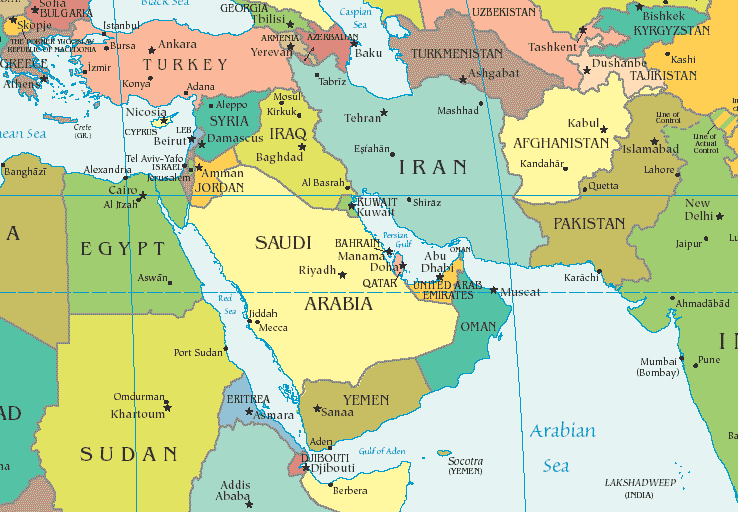
I’m speaking with economist and director of the Centre for Research on Globalization, Michel Chossudovsky. Today’s show, State Terrorism : Franco-American Style. I’m Bonnie Faulkner. This is Guns and Butter.
Bonnie Faulkner : You’ve written that the global war on terrorism is a lie that provides legitimacy to police state measures. What do you think is behind the drive toward creating police states in what we might refer to as former republics?
Michel Chossudovsky : The police state is there to serve economic and geopolitical interests, strategic interests. It’s there to support major corporate interests, the oil companies, the military-industrial complex, the defense contractors, Wall Street. In effect, it’s still profit driven. War is an economic endeavor. War is good for business, so to speak. It provides business to the people that produce the weapons but it also extends the markets worldwide.
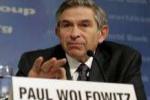 Then, of course, initiatives, these so-called trade agreements, TPP and others, are tied into the military agenda. They’re not isolated phenomena. There’s an interface. It’s not by accident that Paul Wolfowitz, for instance, went from the US Defense Department to the World Bank and back and forth and so on. There’s an interface in Washington between the military and civilian entities, between the Treasury and the Pentagon. Then, of course, all these organizations such as the World Trade Organization, the World Bank, are part and parcel of that broader agenda. What it really means ultimately is that politicians are no longer politicians. They’re instruments of lobby groups. I think we understand that. In an American context we understand that. They’re lobby groups which own the politicians.
Then, of course, initiatives, these so-called trade agreements, TPP and others, are tied into the military agenda. They’re not isolated phenomena. There’s an interface. It’s not by accident that Paul Wolfowitz, for instance, went from the US Defense Department to the World Bank and back and forth and so on. There’s an interface in Washington between the military and civilian entities, between the Treasury and the Pentagon. Then, of course, all these organizations such as the World Trade Organization, the World Bank, are part and parcel of that broader agenda. What it really means ultimately is that politicians are no longer politicians. They’re instruments of lobby groups. I think we understand that. In an American context we understand that. They’re lobby groups which own the politicians.
Then ultimately, those politicians are incited by their corporate sponsors to commit criminal acts.
Obama, in waging a campaign against Syria, is involved in a criminal act. It’s against the law to go and bomb a sovereign country on whatever pretext.
It brings forth the notion of the criminalization of the state, namely the fact that the state is no longer there representing citizens but it’s representing corporations. Those corporations in turn are also involved in criminal undertakings. The financial system is fraudulent; it’s criminalized. They get away with it.
 To maintain appearances there’s an occasional lawsuit against Goldman Sachs or JPMorgan Chase but there’s no actual confiscation of financial assets, as occurred let’s say in Iceland where in the wake of the 2008 financial crisis they actually confiscated the assets of one of banks and now they are actually redistributing the wealth to citizens.
To maintain appearances there’s an occasional lawsuit against Goldman Sachs or JPMorgan Chase but there’s no actual confiscation of financial assets, as occurred let’s say in Iceland where in the wake of the 2008 financial crisis they actually confiscated the assets of one of banks and now they are actually redistributing the wealth to citizens.
This is a rather unique occurrence. It’s not to say that this means a complete change in structure. But you don’t see governments protecting the rights of citizens against powerful corporations. Corporations are running the world. The trade agreements override the Constitution. We know that.
 There’s an imperial agenda, which is ultimately an economic agenda. The irony is that the United States has now set up a whole series of alliances with countries which were the victims of US war crimes. I’m thinking of Vietnam, Cambodia, the Philippines, Indonesia. They’re all allies of the United States and that alliance is now directed against the People’s Republic of China, which constitutes an encroachment to global hegemony.
There’s an imperial agenda, which is ultimately an economic agenda. The irony is that the United States has now set up a whole series of alliances with countries which were the victims of US war crimes. I’m thinking of Vietnam, Cambodia, the Philippines, Indonesia. They’re all allies of the United States and that alliance is now directed against the People’s Republic of China, which constitutes an encroachment to global hegemony.
Click image to order America’s “War on Terrorism”, directly from Global Research
Not to say that China is necessarily an alternative; I don’t think it is. But from a geopolitical standpoint there are certain countries which the United States wants to get rid of including the Russian Federation, the People’s Republic of China, Iran, and, of course, North Korea.
Those are the four countries that are encroachments. There may be others but they’re of less importance.
It’s not by accident that these four countries are being threatened simultaneously. In fact, the US has negotiated an agreement with South Korea which threatens North Korea. I should mention North Korea lost 30 percent of its population during the Korean War and this is something which is well understood, because General Curtis Lemay actually said in a speech we must have killed something of the order of 20 percent and destroyed something like 90 percent of the country’s cities during the bombing raids which they implemented. These atrocities have been committed in various parts of the world – Indonesia – 500,000 to a million so-called communist sympathizers were killed on orders of the CIA. It’s documented because we actually have the declassified documents of the CIA on that event.
I would call this the criminalization of the state. The criminalization of the state is totalitarian because it goes against the rights of citizens. It has an interest in retaining a democratic façade, a two-party system, the institutions of representative democracy. But we know that whoever comes into the White House, whether it’s Hillary or Donald Trump or Jeb Bush, will ultimately be a public relations figureheads who will support dominant economic interests in the United States.
Bonnie Faulkner : You write that, “The evidence amply confirms that while Russia is targeting ISIS strongholds in Syria, the Western Military Alliance is supporting the Islamic State terrorists.” The Russian Federation is bombing ISIS while the Western Military Alliance is supporting the terrorists but publicly, everyone claims to be fighting ISIS. Is there an undeclared war going on between the Russian Federation and the Western Military Alliance?
Michel Chossudovsky : Ultimately, yes there is an undeclared war and it could evolve in different directions, because the Russians are in fact targeting the foot soldiers of the Western Military Alliance and they’re destroying the endeavors of the United States and its intelligence services, its military. Within the ranks of those terror terrorists are Western military advisors. We know that.
But at the same time, the US and its European partners have to play the game, so to speak. They can’t simply say to the Russians, “Well, you’re not actually going after ISIS…” because it’s so obvious even to the broader public that Obama’s campaign has so to speak failed where the Russian campaign, with limited air facilities, in the matter of a few weeks has actually managed to undermine this terrorist presence inside Syria.
The apologists will say – or some people on the Left will say, “Obama’s made a mistake. He screwed up. He doesn’t know how to coordinate these attacks,” etc., etc. as if.
They have these terror terrorists in Toyota pickup trucks. If they’d wanted to eliminate them they could have done it very easily right at the beginning when they crossed the desert from Syria into Iraq. The purpose was not to destroy them; the purpose was actually to protect them. So the US has been very effective in protecting them and also in dispelling and understanding by public opinion that they actually were involved in supporting the terrorists rather than going after them.
 Now, of course, the ball game is different because the Russians are there and ironically, they have established channels of cooperation, let’s say, between France and Russia with regard to counterterrorism. But Putin is a very astute diplomat as well as he’s, of course, former intelligence, a former KGB official, and he knows how to play that kind of game. The Russian media isn’t accusing François Hollande of being complicit of these attacks. Quite the opposite, they’re saying, “Buddy, Buddy.” Putin comes up to François Hollande and says, ‘Let’s cooperate. Let’s collaborate.’ Then Hollande is going to go to Moscow.
Now, of course, the ball game is different because the Russians are there and ironically, they have established channels of cooperation, let’s say, between France and Russia with regard to counterterrorism. But Putin is a very astute diplomat as well as he’s, of course, former intelligence, a former KGB official, and he knows how to play that kind of game. The Russian media isn’t accusing François Hollande of being complicit of these attacks. Quite the opposite, they’re saying, “Buddy, Buddy.” Putin comes up to François Hollande and says, ‘Let’s cooperate. Let’s collaborate.’ Then Hollande is going to go to Moscow.
That, of course, in a sense may create some divisiveness within the Western Military Alliance. It may also uphold the legitimacy of François Hollande because he’s not being bashed by the Russians, and there’s a very careful game which is ongoing.
 But if you look at the broader picture, namely the fact that US-NATO is at Russia’s doorstep in Eastern Europe, in the Baltic states, for instance, both with conventional weapons as well as with the air defense shield.
But if you look at the broader picture, namely the fact that US-NATO is at Russia’s doorstep in Eastern Europe, in the Baltic states, for instance, both with conventional weapons as well as with the air defense shield.
They say that the defense shield is directed not against Russia but against Iran, which is nonsensical. It’s directed against every single major Russian city, so they’re targeting them. Then, of course, they’re supporting an illegal government in Ukraine which is integrated by Neo-Nazis. That is ongoing. And they are intent on destabilizing the Russian economy through sanctions, through financial mechanisms. That’s also ongoing.
In turn, what has happened, what has emerged, is that Russia’s actions in the military sphere have shown Americans that ‘we can do what you can do. We have advanced capabilities,’ which everybody knows they have. It is ultimately appears to be the source of tremendous diplomatic embarrassment that the Russians have been able to liquidate the terrorists in a matter of months and the United States has been so inept – But in fact, they haven’t been inept because they never intended to actually go after the terror terrorists.
Bonnie Faulkner : Michel Chossudovsky, thank you very much.
Michel Chossudovsky : Thank you very much.
* * * *
Bonnie Faulkner : I’ve been speaking with Michel Chossudovsky. Today’s show has been “State Terrorism : Franco-American Style.” Michel Chossudovsky is the founder, director and editor of the Centre for Research on Globalization based in Montreal, Quebec. The Global Research website, GlobalResearch.ca, publishes news articles, commentary, background research and analysis. Michel Chossudovsky is the author of 11 books including The Globalization of Poverty and the New World Order, War and Globalization : The Truth Behind September 11th, America’s War on Terrorism, The Globalization of War : America’s “Long War” Against Humanity as well as co-editor of the anthology The Global Economic Crisis : The Great Depression of the 21st Century. All books are available at GlobalResearch.ca.
Guns and Butter is produced by Bonnie Faulkner, Yarrow Mahko and Tony Rango. To leave comments or order copies of shows, email us at [email protected]. Visit our website at GunsandButter.org to sign up for our email list and receive our newsletter. Follow us at GandB Radio.
On the Post War Reconstruction of Syria
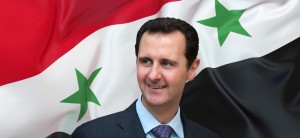 Michel Chossudovsky: I’d like to say something else, which is absolutely fundamental. President Bashar al-Assad in an interview this week stated something very important. This has to do with what happens in the wake of the Russian bombings of terrorist strongholds and what happens next. The Syrian government is talking about reconstruction, and hopefully that will take place. The country is decimated, part of the population has fled, people have been impoverished, the economy is in a shambles, but there is an objective on the part of the Syrian people to rebuild. They are now approaching potential partners, particularly out of China, to assist in the rebuilding process.
Michel Chossudovsky: I’d like to say something else, which is absolutely fundamental. President Bashar al-Assad in an interview this week stated something very important. This has to do with what happens in the wake of the Russian bombings of terrorist strongholds and what happens next. The Syrian government is talking about reconstruction, and hopefully that will take place. The country is decimated, part of the population has fled, people have been impoverished, the economy is in a shambles, but there is an objective on the part of the Syrian people to rebuild. They are now approaching potential partners, particularly out of China, to assist in the rebuilding process.
Now, if this process goes ahead, I think the issue of war reparations, damages, should also be raised against the state sponsors of terrorism, and certainly they should be raised in relation to Saudi Arabia, Qatar, Turkey. It’s much easier to document because even the Western media will concur that the Turks and the Saudis have supported the terrorists but, of course, we know that ultimately the main sponsors of terrorism are the United States of America, NATO and Israel.
This, I think, from the point of view of our understanding but also our solidarity, is that we should be supportive of the post-war reconstruction of this country if that is to occur, and we should also start talking about the damages which have been incurred by the United States and its allies against the various countries which it has destroyed. In this case specifically it’s Iraq and Syria, but also Yemen and also Afghanistan and also Sudan, the various countries around the world which have been literally wiped out, transformed into territories with no compensation whatsoever.
One country which won the war was Vietnam – and I recall that one of the conditions for the normalization of economic relations with Vietnam back in the ‘90s was that they pay back their debt to the Paris Club – in other words, the club of official Western creditors – the money which was owed to them by the Saigon regime. In other words, that money was actually money there to finance the US-led war and then, Vietnam was obliged to actually pay war reparations to the countries which were behind the Vietnam War, namely the United States and its allies.
Bonnie Faulkner : Wow. That’s shocking. Vietnam had to pay reparations to the people that attacked it?
Michel Chossudovsky : Absolutely. There was a secret agreement of the Paris Club and the bad debts of the Saigon regime had to be repaid. Those were debts that went back to the 1960s and we know that the Saigon regime was ultimately also the recipient of US military aid so that in effect Vietnam never negotiated war reparations. It should have, because it won the war – well, it threw the US forces out – but there was never any compensation.
In fact, for the lifting of the sanctions it had to come to terms with the external creditors, both the Paris Club and also the International Monetary Fund. I was in Vietnam at the time and I interviewed the person who was responsible for conducting those negotiations, and what happened with the IMF is they wanted to normalize relations with the IMF but there was money owed from the period of the Saigon regime to the IMF and they said, ‘You have to pay it back before we normalize.’
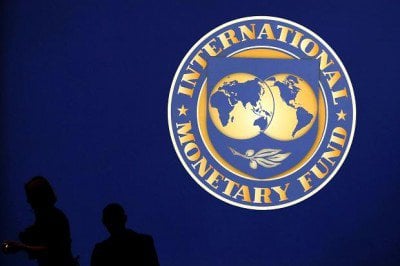 Then what happened: the Vietnamese said, ‘We don’t have the money.’ They said, ‘No problem.’ They set up a friends of Vietnam group which was made up of France and Japan – which happened to be the former colonial powers going back to the 1940s – and France and Japan lent the money to Vietnam and with that money Vietnam paid back the IMF. In fact, none of that money actually entered Vietnam, with a view to normalizing Vietnam in relation to the Bretton Woods institutions.
Then what happened: the Vietnamese said, ‘We don’t have the money.’ They said, ‘No problem.’ They set up a friends of Vietnam group which was made up of France and Japan – which happened to be the former colonial powers going back to the 1940s – and France and Japan lent the money to Vietnam and with that money Vietnam paid back the IMF. In fact, none of that money actually entered Vietnam, with a view to normalizing Vietnam in relation to the Bretton Woods institutions.
Now, the end game of that process is today, Vietnam is another cheap labor frontier of the global economy, an impoverished population, it’s whole social infrastructure undermined, a luxury goods economy, fraudulent banking operations and so on. The same thing occurred in Cambodia. All these countries, which are now allies of the United States, were destroyed. They never got war reparations.
In this particular case, war reparations to Syria and Iraq should be debated at least and the issue of reconstruction should be also on the agenda, particularly of people that are concerned within the anti-war movement.
Bonnie Faulkner : In the historical context that you have been describing, it sounds like Syria would be owing war reparations to the Western Military Alliance.
Michel Chossudovsky : That’s not entirely clear right now, as to the nature of normalization. But I can say that with regard to Iraq, the Iraqi debt, which is under the auspices of a United Nations Compensation Commission, administered out of Geneva, there have been various claims of creditors based on alleged damages. Some of them are corporations, individuals and so on, but the claims against Iraq are in the billions. That means that Iraq’s resources, its oil, are ultimately earmarked for debt servicing for years to come.
That’s the whole purpose. It’s the purpose of a war but it’s also the purpose of the debt conditionalities which follow the war and which often involve the intervention of the World Bank, the IMF and so on. They’re there essentially to ensure that these countries, which have lost everything, are not allowed to even reconstruct. And if they reconstruct it will be reconstruction which creates debt.
That’s what’s happening in Iraq at this very moment. Whatever investments are taking place in Iraq by foreign companies and so on will be ultimately used to increase the debt, which means that ultimately that debt will have to be paid back using the revenues of Iraq’s oil economy.
Bonnie Faulkner : Shocking.














